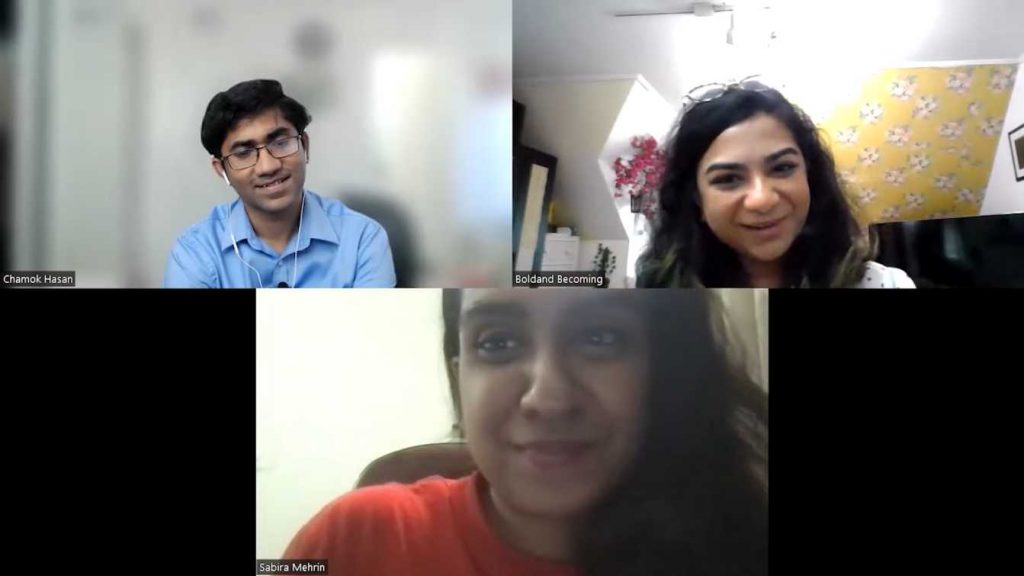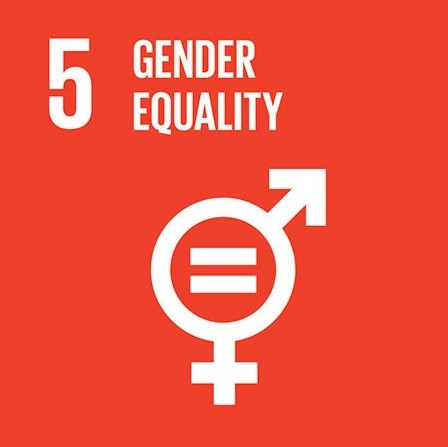Bold and Becoming’s 5th webinar was on “Women Empowerment & Challenges.” We discussed stereotypes about women’s careers, doubting their capabilities, gender disparities in household chores, life challenges, and the coping mechanisms along with the solution to these issues.
We were honored to have the arsenal of talents, math guru, songwriter, singer, writer, & an epitome of learned modern-day parent, Chamok Hasan. Our other guest speaker was the role model, and leader, Sabira Meherin, founder and CEO of “Wonder Women,” a revolutionary organization & community, which is relentlessly working on empowering women by providing them safe & holistic travel services.
Our webinar starts with searching for some key reasons for most Bengali females to be more emotionally submissive despite being economically & academically empowered.
According to Sabira, in most cases, elders are concerned about the protection of the girls. They don’t encourage &let them do things for their growth, like going abroad for jobs or education. This dependency instigates a fear based & validation seeking mindset among female children which hinders them from making their own decisions.
In the sub-continent context, we discussed how expressing emotions is structured to be different for different genders. Men are not supposed to show emotions, while women are supposed to express emotion through sadness, crying, etc. However, showing emotion is not a weakness. In fact, it helps to work with compassion and care. Sabira added that a positive safe environment is a must to promote expressing emotions at home.
Chamok feels that cultural conditioning for gender roles is one of the reasons behind it. We have the fear that something bad can happen to girls. He suggested we should teach them decision-making from childhood.
Next, we moved on to discuss the effects of gender disparities in household chores. Continuing the discussion, Chamok shared how he and his wife sometimes struggle in overcoming these gender disparities in household chores but actively try to promote a gender neutral household chore-system for her daughters to learn from and grow up with.
Chamok also mentioned that he sometimes facilitates her daughter to help him and his wife in household work. They try to ensure their children understand that household chores are not limited to any specific gender.
Sabira also shared the importance of learning household chores for any gender. She stressed learning to cook and clean are fundamental to taking care of own-self & thus, should not be limited to only specific gender. She suggested using positive reinforcement like rewards, and gifts to teach household chores to the children.
We later discussed how career aspirations for Bengali women are often shaped or limited by cultural stereotypes. Sabira explained that culturally our elders want to pass on the security of their established professional platform and built in network to the next generation, which in turn factors into shaping careers for women.
Sabira also emphasized how her father supported her during her International Business Administration(IBA) journey despite that her other family members and relatives wanted her to take the medical entrance exams to become a doctor. Also, the lack of role models in unconventional careers plays a vital role in this, she added.
Chamok Hasan shed light on society’s expectations. He expressed that our society is built in a manner to provide financial security to men but lacks to ensure social security for women. He emphasized that ensuring security for women in every workplace will promote females to join the workforce. And he diligently thinks that it is the responsibility of the men too to provide a safe work space for women. He also stressed that we need to cognizantly stop our mental biases of thinking that women are not capable of doing complicated tasks. Sabira suggested that this will also help in cultivating a more safe working space for women where they won’t be feared to be vocal and to set boundaries in their workplaces.
Sabira explained how people question the capabilities of both genders differently. For instance, men may be questioned on their communication skills for their accomplishments while women are questioned on their accomplishments and assumed to have made the work using their beauty instead of intellect. Chamok added that the change needs to happen at the policy level. Authorities need to restructure our systems to be more gender inclusive.
End of the session, the guests discussed the challenges in their lives and their coping mechanisms to face them. Chamok shared his challenging time during his Ph.D. and his first baby. He used his creativity, vented out, & was never ashamed of crying. He emphasized to couples and/or partners to have mutual respect for each other to overcome any rough time!
What are the challenges you faced, what are your coping mechanisms?
Let us know boldandbecoming@gmail.com.



